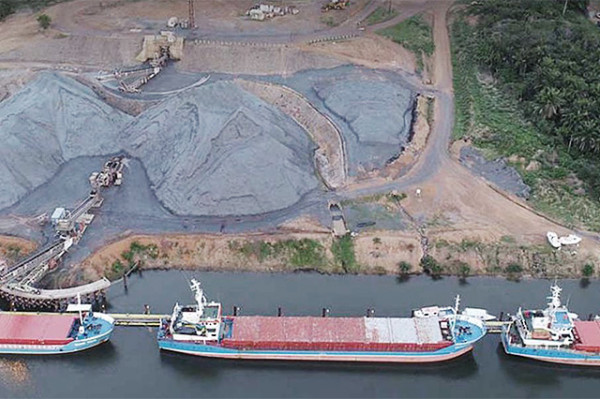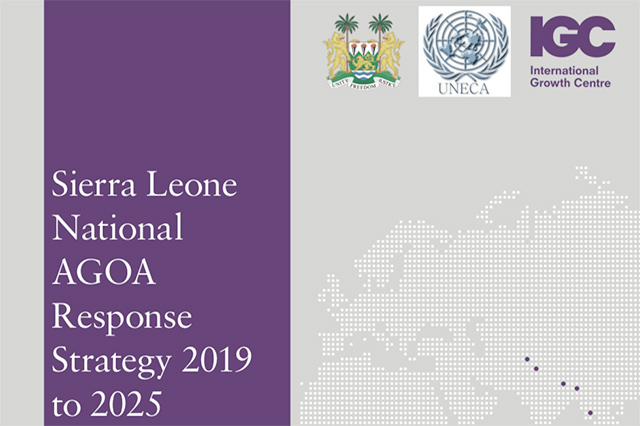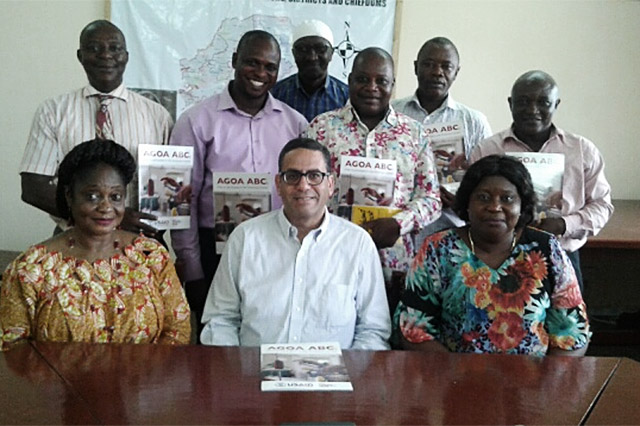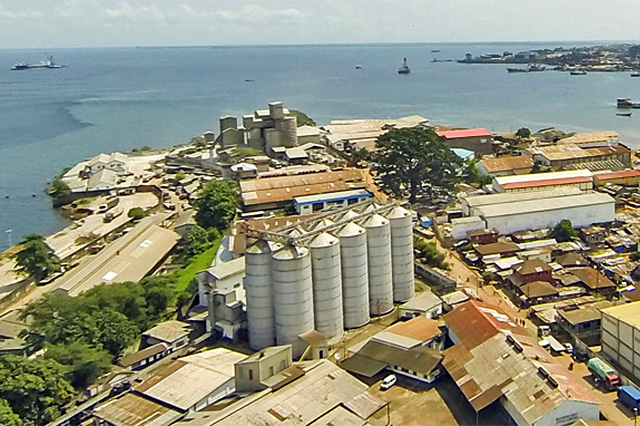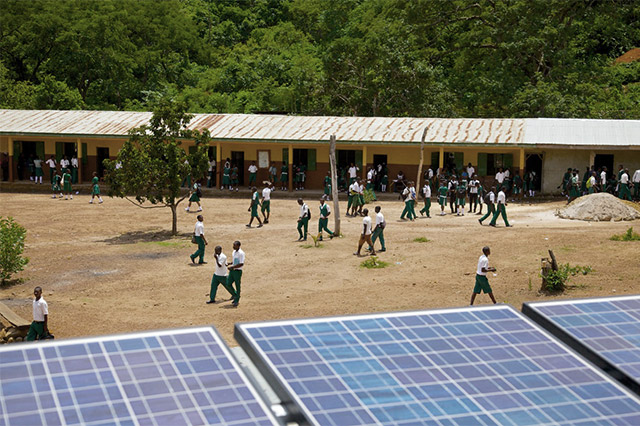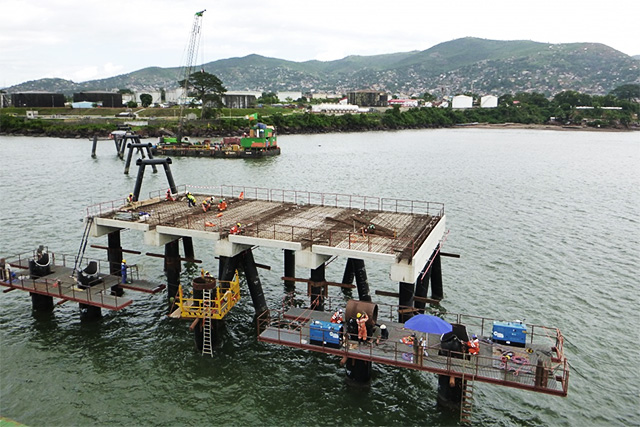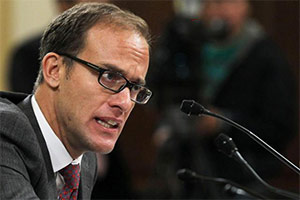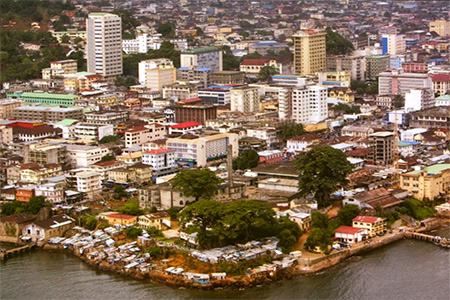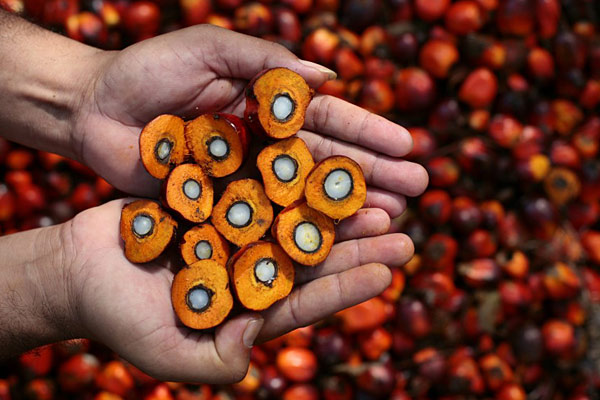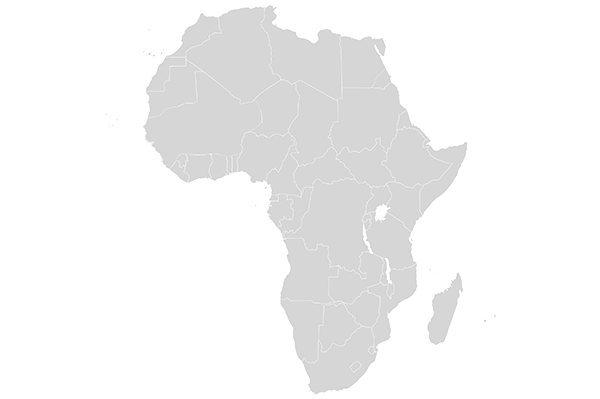Sierra Leone mining dispute threatens US firms
The decision by Sierra Leone to shut down the operations of U.S.-owned SL Mining has called into question that government’s commitment to the rule of law with regard to foreign investors. Since the mid-1990s, the U.S. Government has initiated various programs to boost U.S.-Africa trade and investment – from the African Growth and Opportunity Act (AGOA) to the Prosper Africa initiative that was launched in 2018.
The success of these initiatives depends in part on American companies receiving fair treatment in their dealings in Africa. Prosper Africa “brings together services and resources from across the U.S. Government” to promote U.S. business activity in Africa, but how can there be robust U.S. investment on the continent if the legitimate interests of American companies are not respected and the U.S. government doesn’t take action to support American business interests?
Now consider the case of Sierra Leone. In December, the Millennium Challenge Corporation – a U.S. government agency – selected Sierra Leone for a five-year grant program “to reduce poverty through targeted investments that increase economic growth.”
The announcement of the MCC compact, was welcomed by President Julius Bio, who said: “We have achieved this because of the tremendous gains we have made in controlling corruption, investing in people, protecting democratic rights and enabling economic freedoms.”
SL Mining, a Sierra Leone company wholly owned by the Gerald Group, one of the world’s largest metal trading companies, was granted a mining license agreement (MLA) that was ratified by Sierra Leone’s parliament in December 2017. Shortly after, the company started construction of the first phase of its Marampa iron ore project in Lunsar in the Portloko district. The project was commissioned in January 2019, reviving an historically distressed mine to produce the highest quality iron ore concentrate in Africa. One month after SL Mining began exports in June 2019, the Sierra Leone government imposed an export ban on the project and, soon after, cancelled the company’s mining license, alleging breaches under the MLA.
SL Mining denied the charges and – as prescribed under the MLA – filed for dispute arbitration with the International Chamber of Commerce (ICC), which issued peremptory orders and partial final awards compelling the government to allow the company to continue to operate. Sierra Leone challenged those orders before the English High Court, which two months ago dismissed Sierra Leone’s claim and upheld the ICC’s partial final award, concluding that SL Mining “wins on each issue.”
The judgment by the court, widely seen as reaffirming the role of arbitration in dispute resolution, was welcomed by the international investor community. However, the Sierra Leonean government has so far refused to comply with the ICC orders, forcing the project to remain dormant.
In the global marketplace, these negative developments have significantly hampered the country’s standing. “Iron ore from Sierra Leone is becoming increasingly less relevant,” said Erik Sardain, a principal consultant with Roskill. “It’s too much struggle for producers who have invested time and effort and find they have no way of dealing with the government.”
The impact of SL Mining’s shutdown is also being felt by Sierra Leonean families locally as well as nationally, as thousands of jobs relied on the large-scale mining operation. Prior to the shutdown, the Marampa project employed around 1,500 Sierra Leoneans. In Lunsar, the mine was the town’s economic backbone, and the loss of income from the mine, including royalties to the town, stalled community projects. Like many in the community, Abdullai Bangura has paid a huge price. Bangura worked as a plant electrician, earning a stable income, but now he farms cassava and groundnuts, barely enough to support his family in Rogbanneh Village.
Locals have a good relationship with SL Mining, and they want the company back.According to the agreement that the parliament ratified, the Sierra Leone government is obligated to lift the export ban and allow SL Mining to operate the mine while the dispute is resolved through arbitration. Yet the government has elected to put 1,500 people out of work, jeopardizing the livelihoods of another 15,000 people who depended on that income.
In addition, the government deprived itself of over $100 million in income in the form of taxes and royalties from the project at current iron ore prices.
The government further tried to intimidate SL Mining employees, most notably with the unjustified temporary detention of management, including Gerald Group’s Chairman and CEO, a U.S. citizen. The detention not only drew the condemnation of the U.S. Embassy, but the British and Indian High Commissions as well.
The country’s legal dispute with SL Mining is a concern in Washington as Ambassador David Reimer begins his assignment in Freetown. The well-regarded diplomat arrived in the country a few months after the MCC Board of Directors selected Sierra Leone for the compact aimed at reducing poverty. Sierra Leone’s MCC’s scorecard, a part of the compact approval process, was a priority of the former American ambassador, Maria Brewer, who was commended by President Bio for helping secure the compact when she departed in February. The government has welcomed the MCC compact.
However, recent experience suggests that a successful MCC compact is not guaranteed. Sierra Leone was selected for a similar program in 2012, before it was rescinded a year later after the government failed the MCC scorecard indicator for corruption. If the new compact proceeds, it will take several years before the MCC disburses substantial funds to Sierra Leone under its current compact. Resolution of the SL Mining issue by the two parties is likely to be an important MCC consideration moving forward.
Meanwhile, China’s activity in the African mining sector is a recurrent concern of U.S. policymakers, and Chinese mining operations in Sierra Leone have a demonstrably poor track record. In 2019, the government’s decision to grant a license to China’s Kingho for the Tonkolili mine in northern Sierra Leone sparked a parliamentary inquiry over the deal’s lack of transparency. In January, Kingho shipped its first batch of iron ore from the Tonkolili mine, despite lacking a parliament-ratified MLA.
Reimer’s tenure represents an opportunity for both countries to address these concerns and build the bilateral relationship. “We remain deeply committed to Sierra Leone’s success as a democratic nation and to the wellbeing of its people,” he is quoted as saying during a ceremony last month at State House where Bio celebrated the successes of the MCC $44 million Threshold Program, which began in 2015.
Reimer indicated his commitment to seeking resolution of the SL Mining dispute when he appeared before the Senate Committee on Foreign Relations for his confirmation hearing in December.
Responding to a question by then-chairman James Risch (R-ID), who asked how he would respond to the SL Mining case, Reimer committed to “engaging on the SL Mining case directly” with the government while also working to make the country a more attractive location for American investment. Concern about corruption in Sierra Leone was also raised during the hearing by Bob Menendez (D-NJ), who now chairs the Committee, which has oversight of the MCC.
The Biden administration has stated a commitment to promoting U.S. business interests in Africa, along with transparency and the rule of law. An essential element of the rule of law is honoring commercial contracts, but relations between Sierra Leone and the United States are currently clouded by the dispute involving SL Mining.
The dispute touches all of the priorities of the Biden administration in Africa and its timely resolution could help Sierra Leone address underlying issues, from poverty and slow social development to the absence of a strong private sector to drive economic growth. It also would strengthen the rule of law, which is not only a key pillar for the U.S.-Sierra Leone relationship but also is essential to attract investment to a country struggling to better the lives of its people.
The SL Mining case presents a major test for U.S. trade and investment policy. Will the administration continue to allow Sierra Leone to enjoy duty-free, quota-free trade benefits under AGOA if the government refuses to honor contracts or respect internationally binding court decisions?
Will the MCC use its authority to withhold disbursement of funding on a compact with a government that disregards international law? I saw these tools used effectively to promote better trade and investment performance during my time in government, and I hope the commercial rights of American companies will be defended by the U.S. government in this and other cases.
- Gregory Simpkins is the Executive Director of the African Merchants Association and writes the Africa Rising 21st Century blog. He recently retired from the U.S. government where he last served as Senior Advisor in the U.S. Agency for International Development Agency’s Africa Bureau. Prior to that government service, he was Staff Director for the U.S. House Subcommittee on Africa, Global Health, Global Human Rights and International Organizations.


